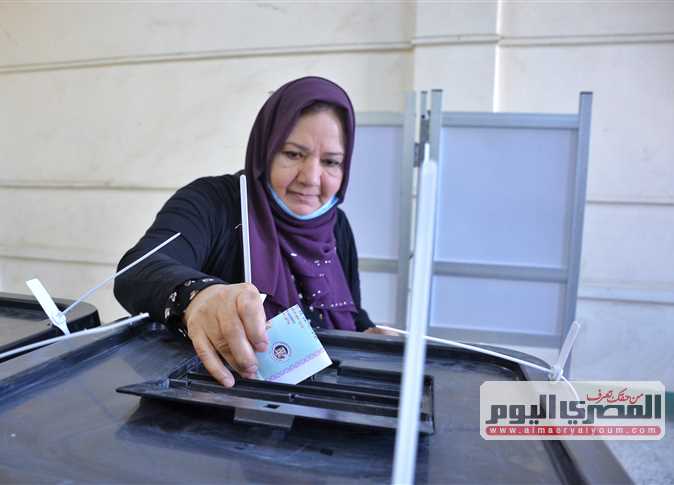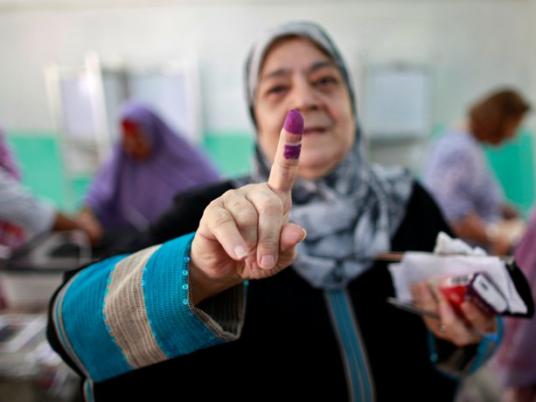Fears that a new Egyptian constitution will produce a dysfunctional and undemocratic outcome are rapidly coming to a head. The Supreme Council of the Armed Forces has been pushing to draft a new constitution at breakneck speed, and its most recent decision to move up the presidential candidate nomination period to 10 March might make the constitution’s already compressed timeline even more volatile.
According to the transitional roadmap originally proposed by the SCAF, in order to produce a new constitution before the presidential election, the legislature would need to elect a 100-member constitutional assembly and draft the document in a matter of weeks, between the conclusion of Shura Council elections in March and the opening of the nomination period for presidential candidates on 15 April. But now that the SCAF has moved the date up a month earlier than planned — in a last-ditch effort to diffuse rising opposition to military rule by expediting a power transfer — it is unclear if Egypt’s military leaders will accommodate demands to delay the drafting process until after the election.
Only until recently, the Muslim Brotherhood’s Freedom and Justice Party backed the military’s announced timelines. This arrangement has since shown signs of strain. On 28 January, Ahmed Abu Baraka, the head of the FJP’s legal affairs unit, explained that the party views the presidential election and constitution-writing process as two parallel tracks that need not be conducted sequentially but could instead proceed side by side. This stance effectively dodges the debate over which should come before the other. But with the military’s roadmap thoroughly delegitimized by renewed violence and protests, the Brotherhood may soon be forced to decisively withdraw support from SCAF’s preferred schedule of events and back the drafting of a new constitution under civilian oversight.
The contentious question of how and when the constitution should be written is at the center of the SCAF-Muslim Brotherhood power struggle. And while the Brotherhood has been willing to scale back some of its previously stated political ambitions (as when it backed down from earlier threats to dissolve the interim cabinet after parliamentary elections), the constitution is the one area where it will not in all likelihood yield any ground; it has made it perfectly clear that Parliament has the exclusive authority — backed by a legal as well as popular mandate — to appoint a constituent assembly, and that it intends to carry the “burden” of framing the constitution without SCAF’s unwanted assistance.
Although it would prefer to keep a tight leash on the new legislature, the military leadership’s acute legitimacy crisis will make it difficult to maintain control of the new political system. On 31 January, FJP MP Mohamed al-Beltagy declared that “Parliament has become the only unchallenged legislative authority” and mentioned that SCAF had overstepped its bounds by issuing a new law regulating the presidential election just three days before the People’s Assembly convened for its first session on 23 January. Yet even before then, the SCAF attempted to curb the powers of the People’s Assembly — perhaps rattled by earlier FJP rhetoric that the next parliamentary majority should form a new cabinet. In December 2011, SCAF member Mamdouh Shahin tried to preempt such a grab by the legislature, and stated that the People’s Assembly would not have the power to appoint new ministers or dismiss a SCAF-appointed government. But while the military would undoubtedly like to maintain its exclusive monopoly on cabinet appointments, this is becoming increasingly untenable, and lawmakers are already demanding the dismissal and trial of top ministers. Even if SCAF tries to challenge the legal basis for Parliament’s newly asserted powers, the military has decisively lost the legitimacy and political capital needed to challenge a legislature emboldened by its sweeping electoral mandate.
The military’s role in the new political system will only become even more increasingly divisive once debates begin in earnest. The FJP-led Islamist majority in Parliament has clear strategic interests in shifting power away from the executive branch; they have endorsed a “mixed” parliamentary model inspired by the French system to replace Egypt’s existing executive-heavy presidential system.
While the Brotherhood is hedging its bets and sidestepping the landmine dispute over sequencing the elections, the Salafi Nour Party seems eager to expedite the constitutional process while its elected MPs are still in a strong position of influence. In mid-January, Nour’s secretary general said that “writing the constitution is more important than talking about the presidential election.” It is unclear whether the Salafis will continue prioritizing the swift formation of a constituent assembly now that SCAF has pushed up the timetable for elections. Yet the abbreviated transitional timeline could force them to accept that the four weeks remaining before the presidential elections process would be both technically impossible for commencing the constitutional drafting process and politically polarizing.
On the other end, many liberals have already come out in favor of postponing the constitution until after the presidential election — even if it means electing a civilian executive with ambiguous and undefined powers. In the view of some, such as Shady al-Ghazaly Harb, a hastily constructed constitution lacking the broad-based popular support needed to ensure its legitimacy and durability would be a far greater hazard to democracy than a president with a constitutionally vague mandate.
Members of the judiciary, including the Supreme Constitutional Court, also support a longer timeline. Interviewed in Cairo on 26 January, Judge Zakaria Abdel Aziz (former head of Egypt’s powerful Judges’ Club) acknowledged that there is no easy exit from the current impasse, but also outlined what he believes to be a best case scenario: “a provisional, temporary president and People’s Assembly would serve for another two years, during which we would have the political space and time to draft a constitution.”
Former presidential candidate Mohamed ElBaradei and his National Association for Change have since announced a similar initiative. Under the proposed scenario, after the constitution is written over an ample interim period allowing for extensive public debate, elections would be held again, resetting Egypt’s democratic transition on a clean constitutional slate, signifying the birth of a post-authoritarian political order.
To break free of an authoritarian political tradition in which laws have been cynically and violently manipulated to repress dissent, Egypt will need a constitution with both the legitimacy and durability to survive the inevitable setbacks on the long road to a fully functioning democracy. The challenge of forging consensus on the contours of this legal framework will be the basis of a new social contract in the post-Mubarak Egypt, and in order to stand the test of time, Egypt’s new constitution cannot be written overnight.
Mara Revkin is the assistant director of the Atlantic Council's Rafik Hariri Center for the Middle East and editor of EgyptSource.
This article is reprinted with permission from Sada, © 2011, Carnegie Endowment for International Peace.




